Note: This post is out of order. It is from earlier in my hike when I didn’t have time to keep my blog up-to-date, so I’m posting it now.
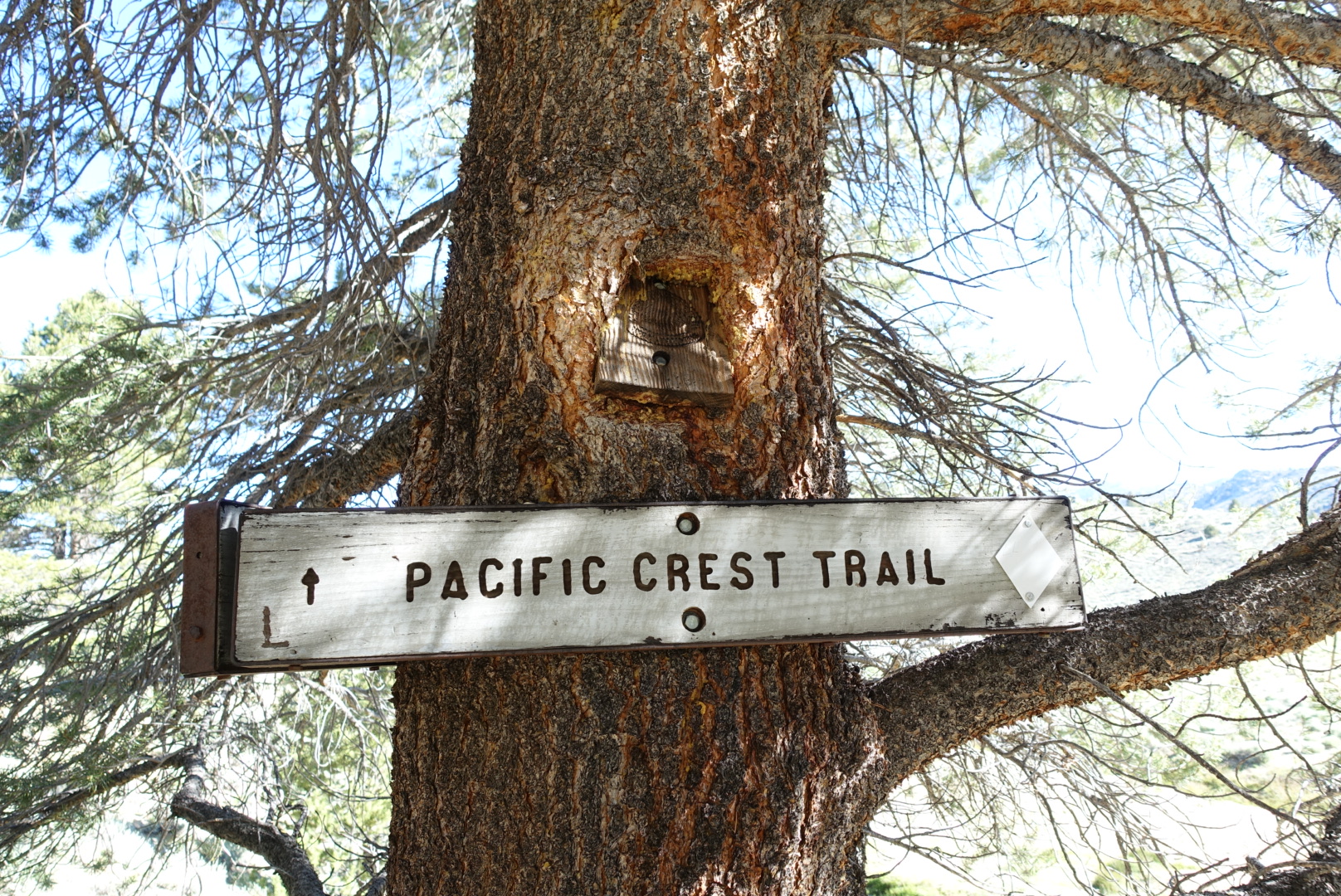
I had a slow start today. I needed to figure out how to carry my bear can. In the position I’d carried it in yesterday, it’d slipped out, so I needed to find a better way to attach it to my backpack.
I tried several ways, but decided on just a slight change to the position I’d used yesterday (as shown in the Kennedy Meadows picture). I tied some orange cordage onto the side of my backpack, connecting the body of the pack to the lid, such that the bear can could no longer slide out the side. It was clearly homemade, and wouldn’t last forever. But, it didn’t need to last forever, it only needed to last until Sonora Pass, where the National Park Service’s bear canister requirement ends.
But there was lots to worry about before Sonora Pass.
After crossing the bridge over the the Kern River fork that we’d slept by, we started a climb. The Kern River water wasn’t very good, there were cow pies next to it, but it tided me over to the next water source, Cow Creek (much better-tasting, ironically, because it didn’t have any cow pies nearby).
Elizabeth finished filtering her water before I did, and she wanted to go faster, so she went ahead, and we split up for the rest of the climb. I finished my filtering soon after, and started uphill.
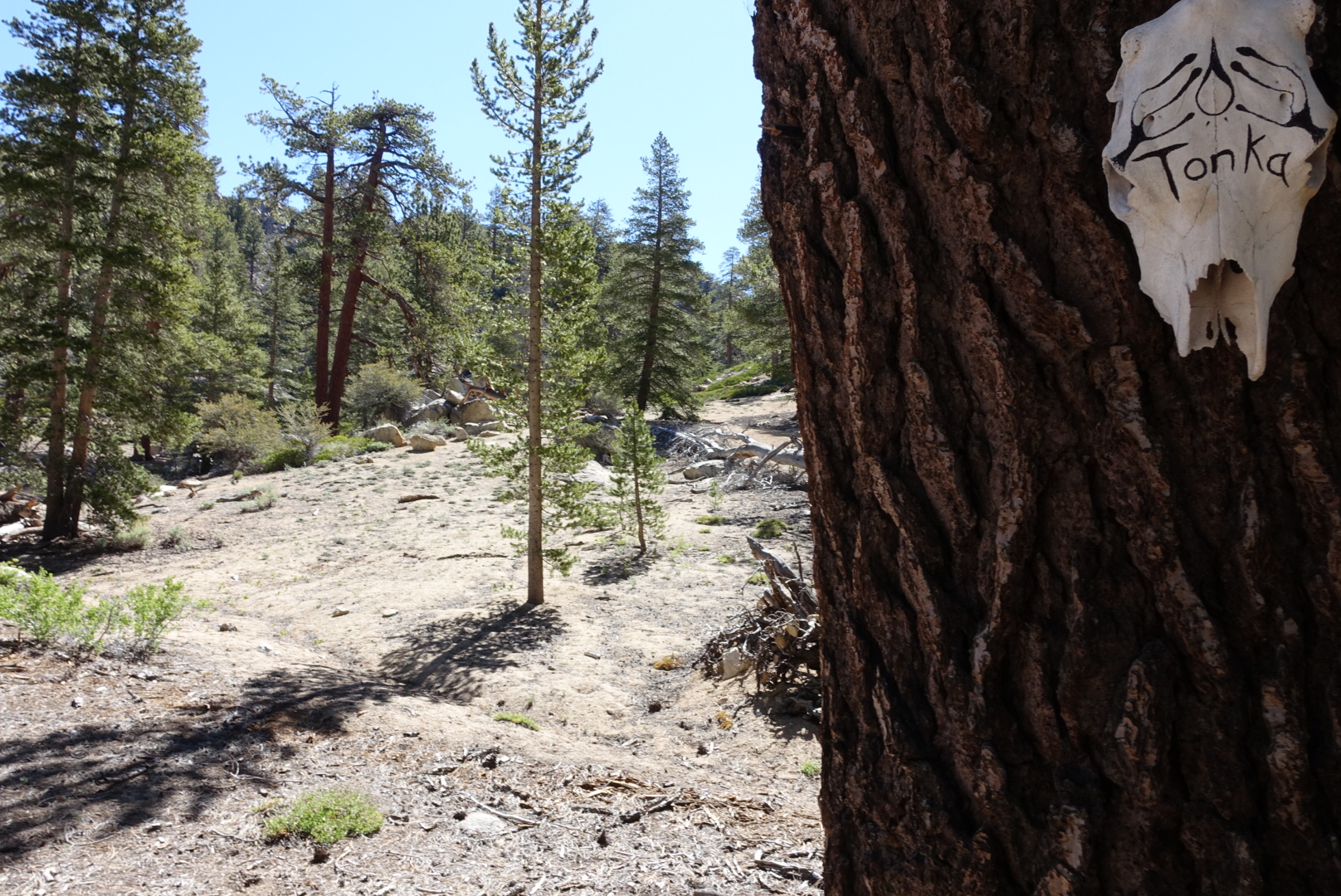
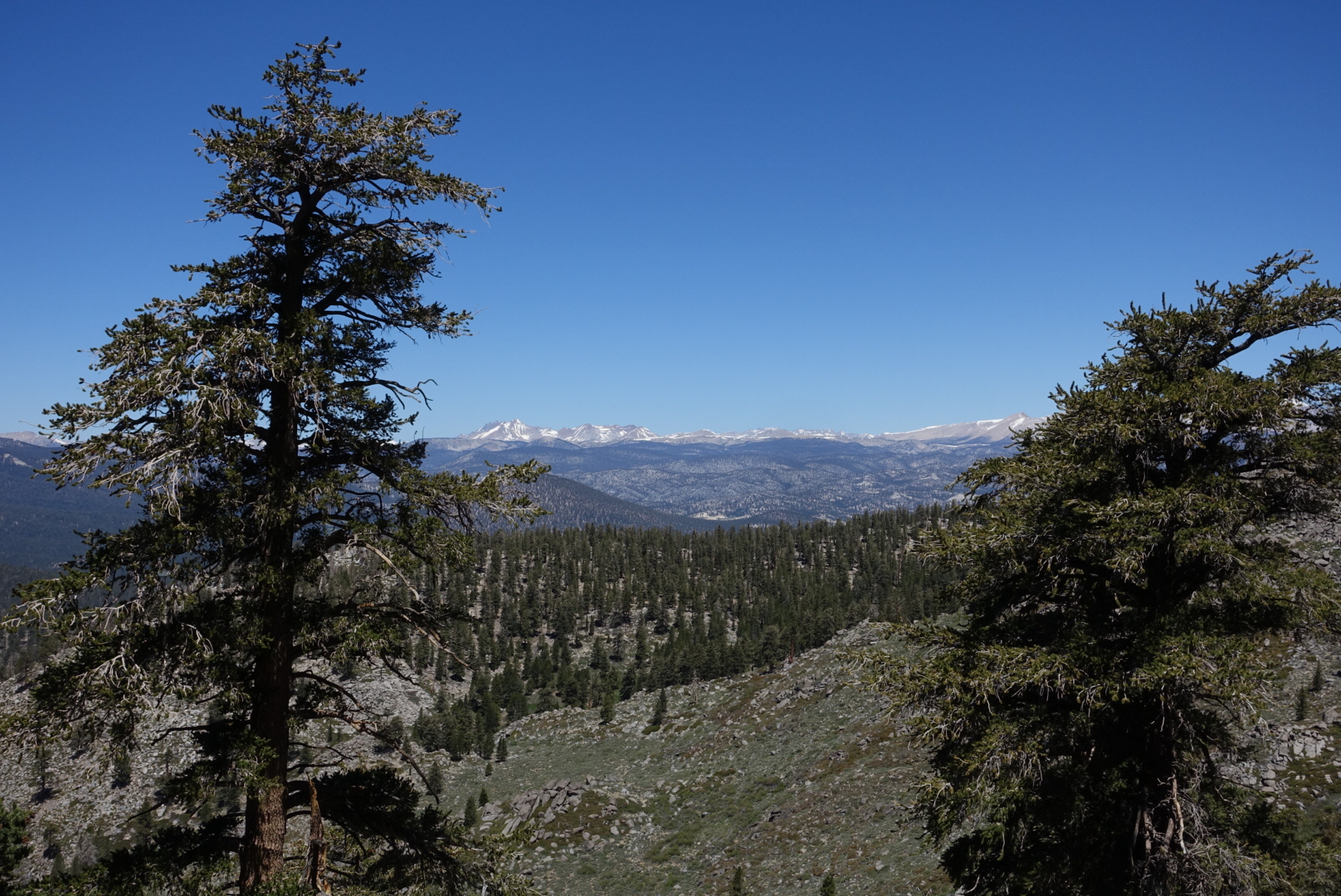
I reached the pass (Olancha Pass I think?), and noticed we were above 10000 feet — a taste of the high passes to come. The treeline should be not much higher.
The vegetation seemed different up here. Dead tree trunks, at least, had a distinctive spiral pattern in their wood, as if they were twisted very slowly as they grew.
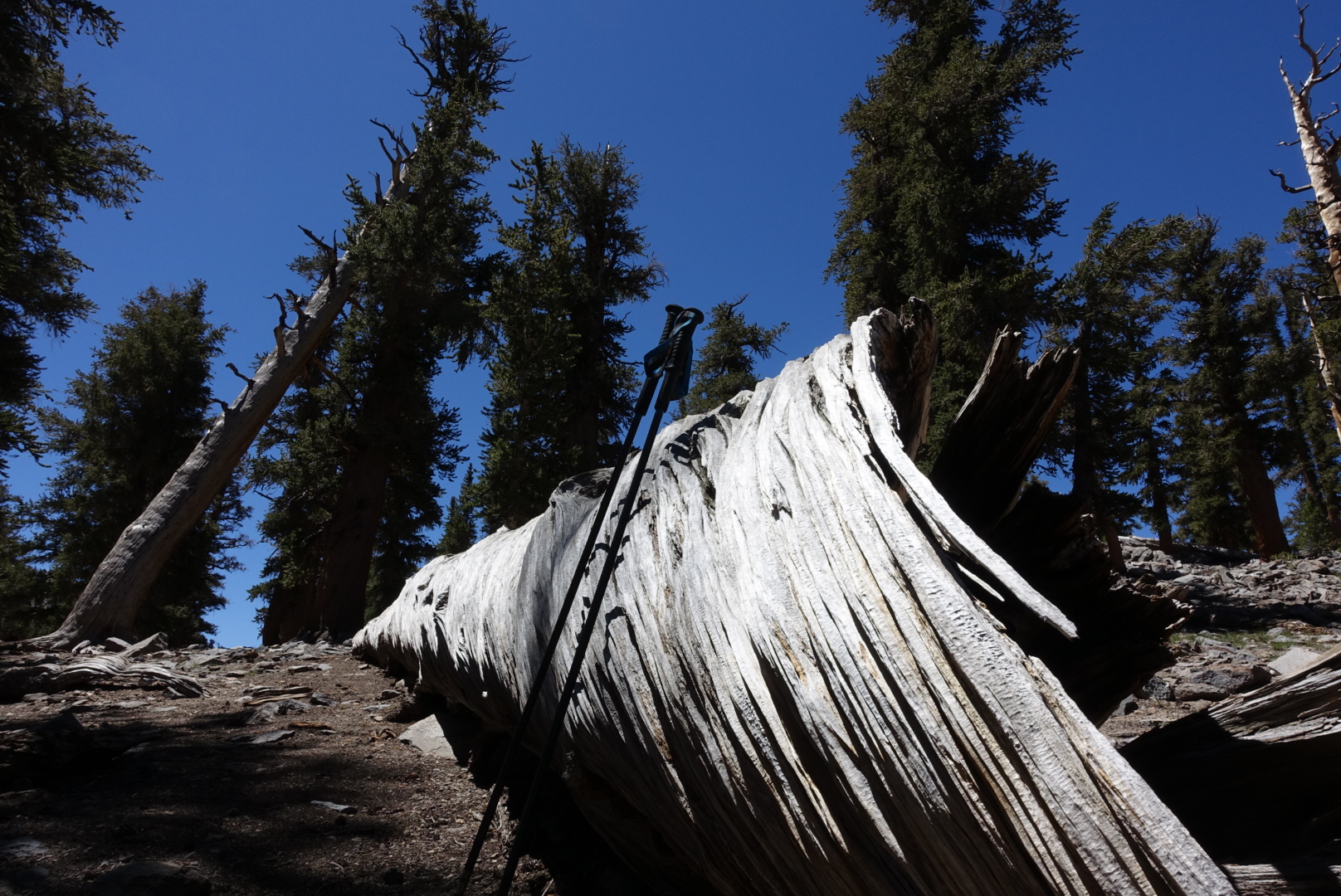
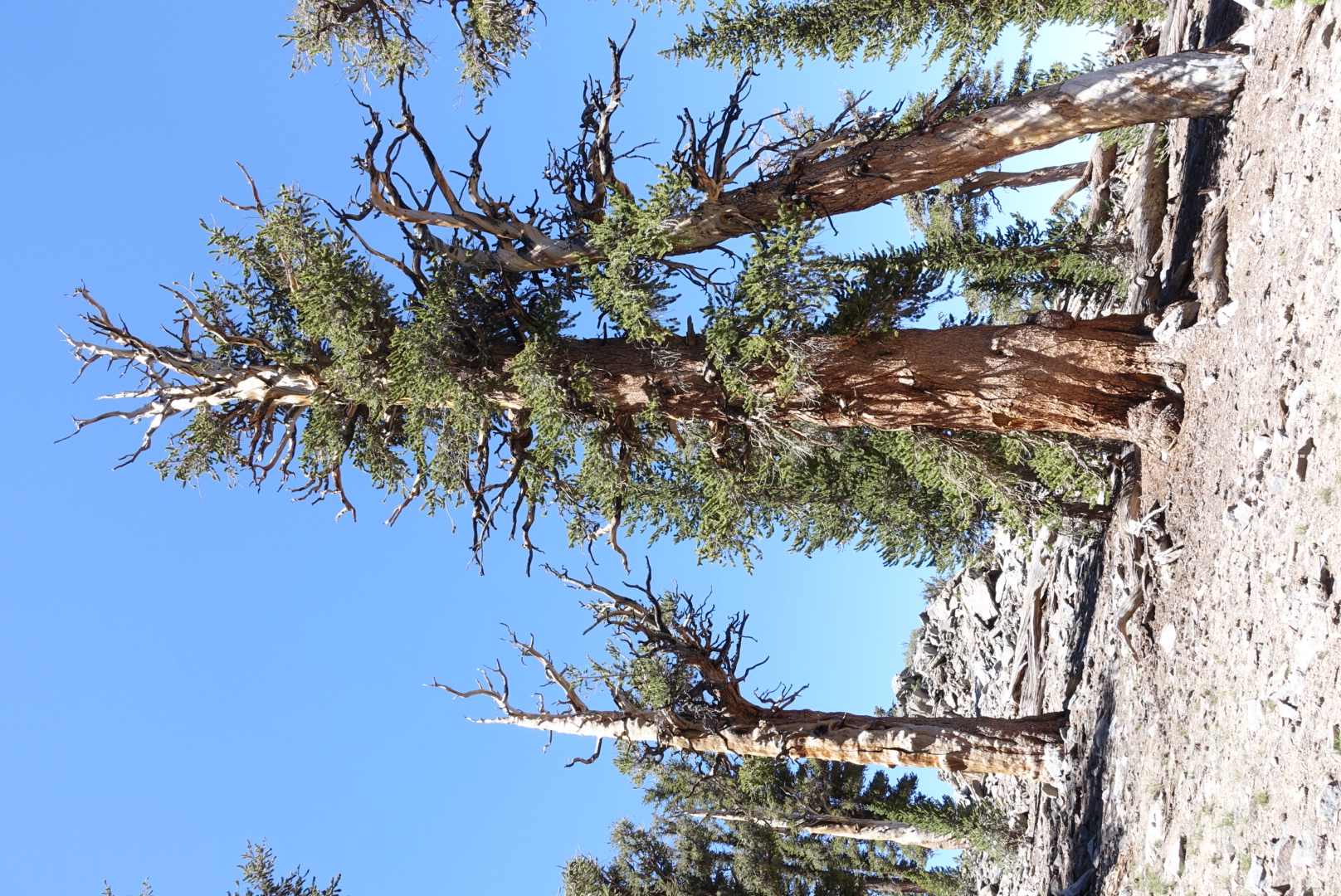
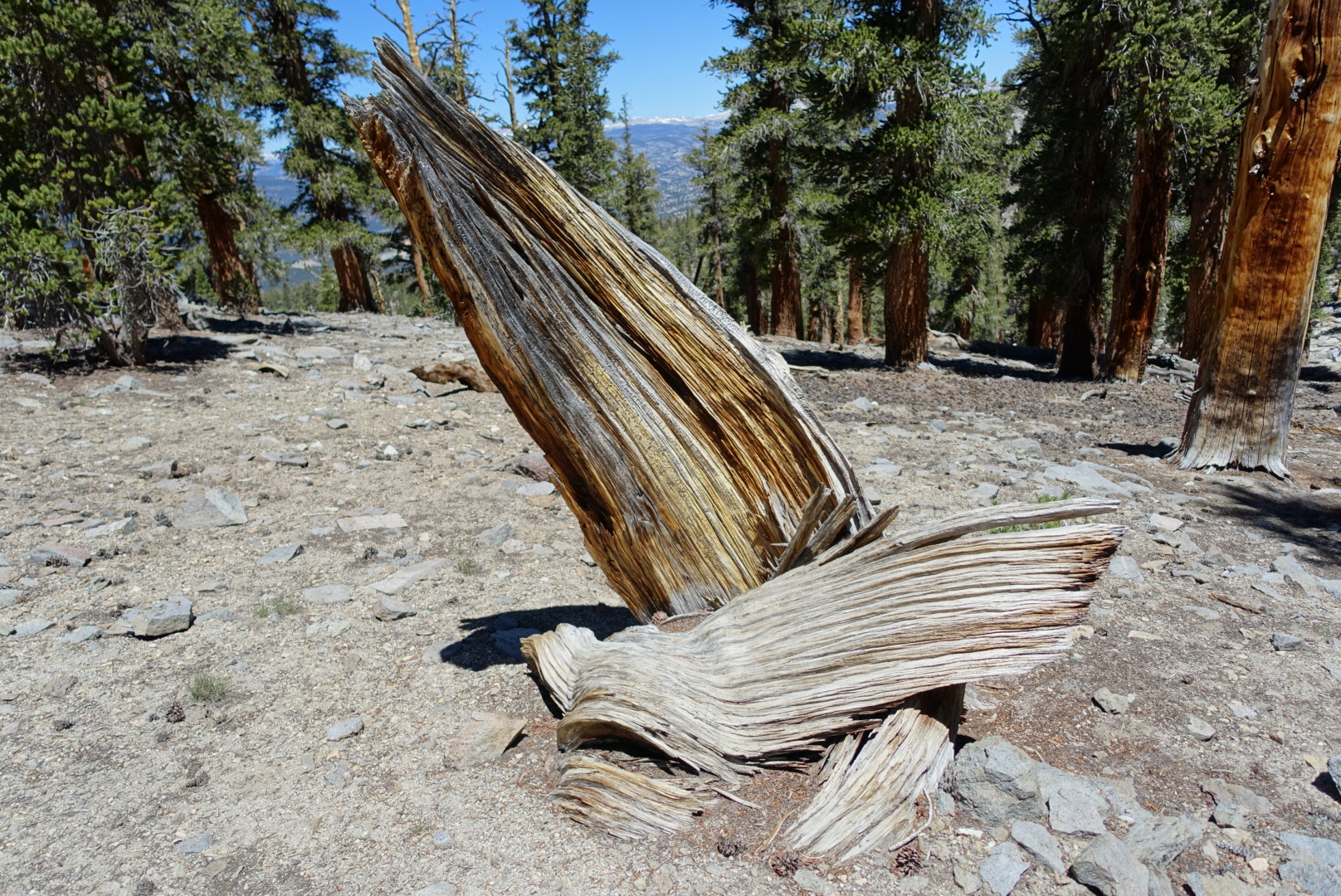
Descending from the pass, I asked another hiker if he’d seen the woman in the bonnet pass by. He said about 20 minutes ago. I hiked a couple minutes, and asked another hiker the same question. He said 10 minutes ago. Then, about 30 seconds later, I saw Elizabeth sitting on a rock, finishing her lunch.
I started setting up my own lunch, but something was wrong. Elizabeth wasn’t moving. Then, she slumped over, and dropped her food.
She came to quickly, but described symptoms like seeing the wrong colors, dizziness, and nausea. She fainted again (again, only briefly).
We rested. She asked if the people we camped with last night have all gone by, one was a medic. I wasn’t sure. We rested some more.
An hour or so later, the medic came by. He checked her symptoms, and thought it was altitude sickness. He suggested rest, then to camp at the lowest altitude we could easily get to tonight.
We thanked him, and he started hiking away. I quickly said, “Just a second — I didn’t get your name. I’m Town Food, this is Pitter-Patter.”
“I’m Professor Kind” he said, and walked off.
Soon afterwards, we were ready to go. Our new destination for the night was the lowest campsite nearby, Death Canyon Creek. Elizabeth seemed to be hiking fine now — we passed most of the people who had passed us while we were resting.
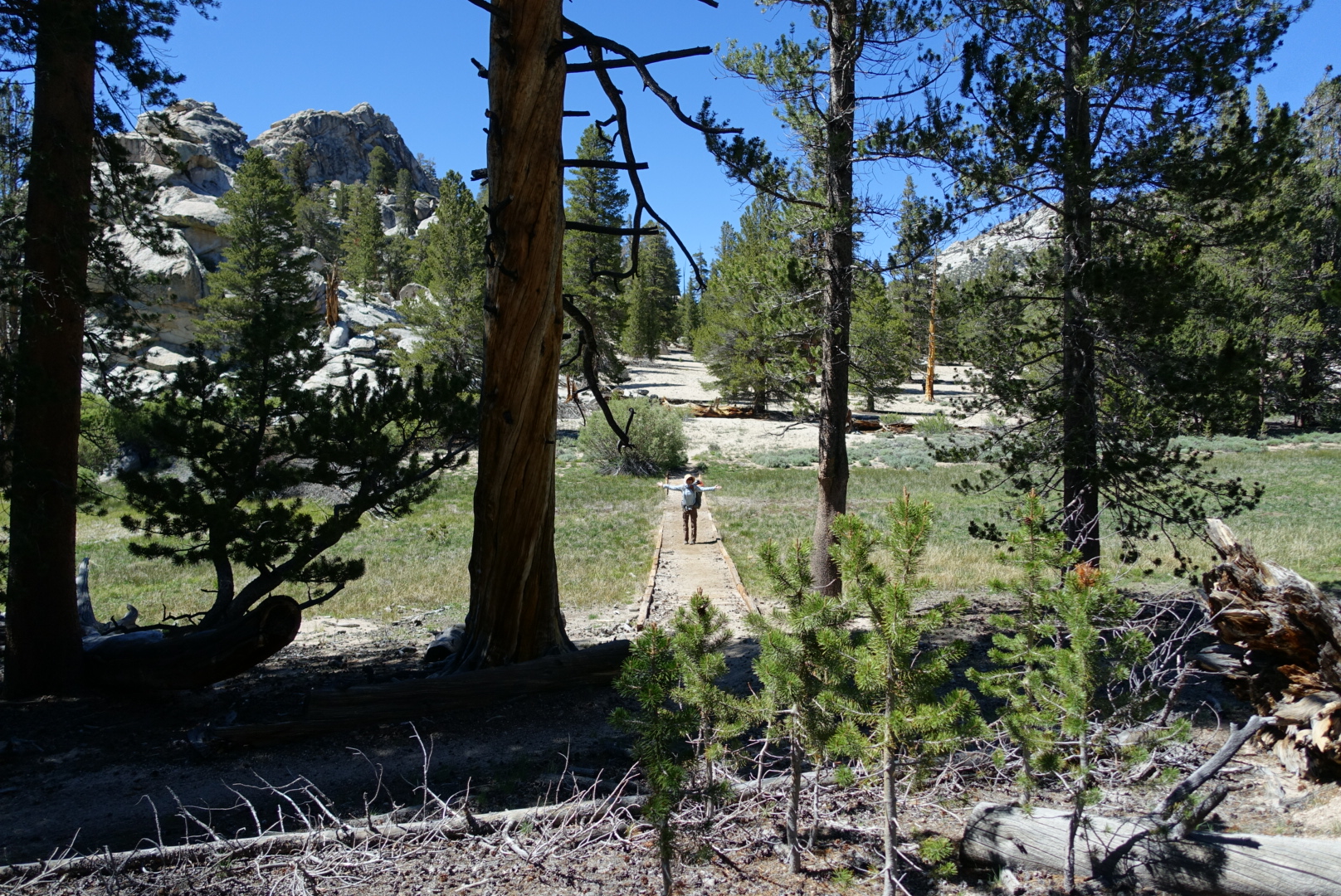
(N.B. I now think Elizabeth was not having altitude sickness, since it didn’t happen at the right time. I think it was blood-sugar related, and caused by food.)
We arrived at Death Canyon Creek in the early afternoon. It’s a popular campsite — maybe 15 hikers were there.
Being at a campsite this early in the day was a different experience, with people taking their hike at a different pace from us. Somebody was practicing throwing rocks with a sling. Someone was sunbathing. Other people set up their tents just for midday, then cleared out in the afternoon.
We took our time setting up tents, filtering water, cooking dinner, chatting with the other hikers, etc.
Someone made a campfire later in the evening. We sat nearby and chatted with the other hikers about everything. Elizabeth tried a dinner experiment where she mixed fried snack peas into instant potatoes. It was a culinary failure, but it did turn the potatoes greenish.
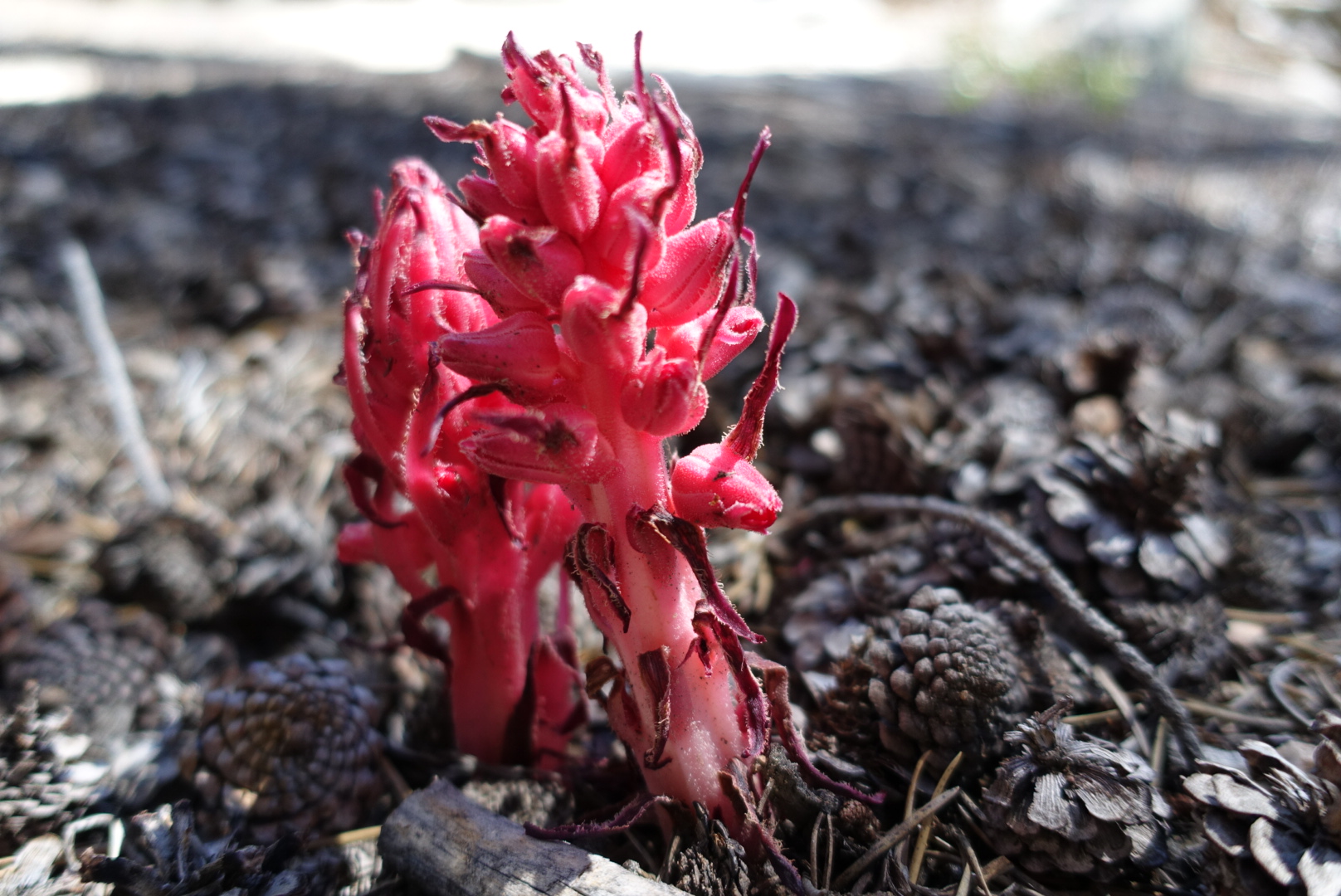
Soon enough, it was time for sleep. We’ll see how Elizabeth feels tomorrow.
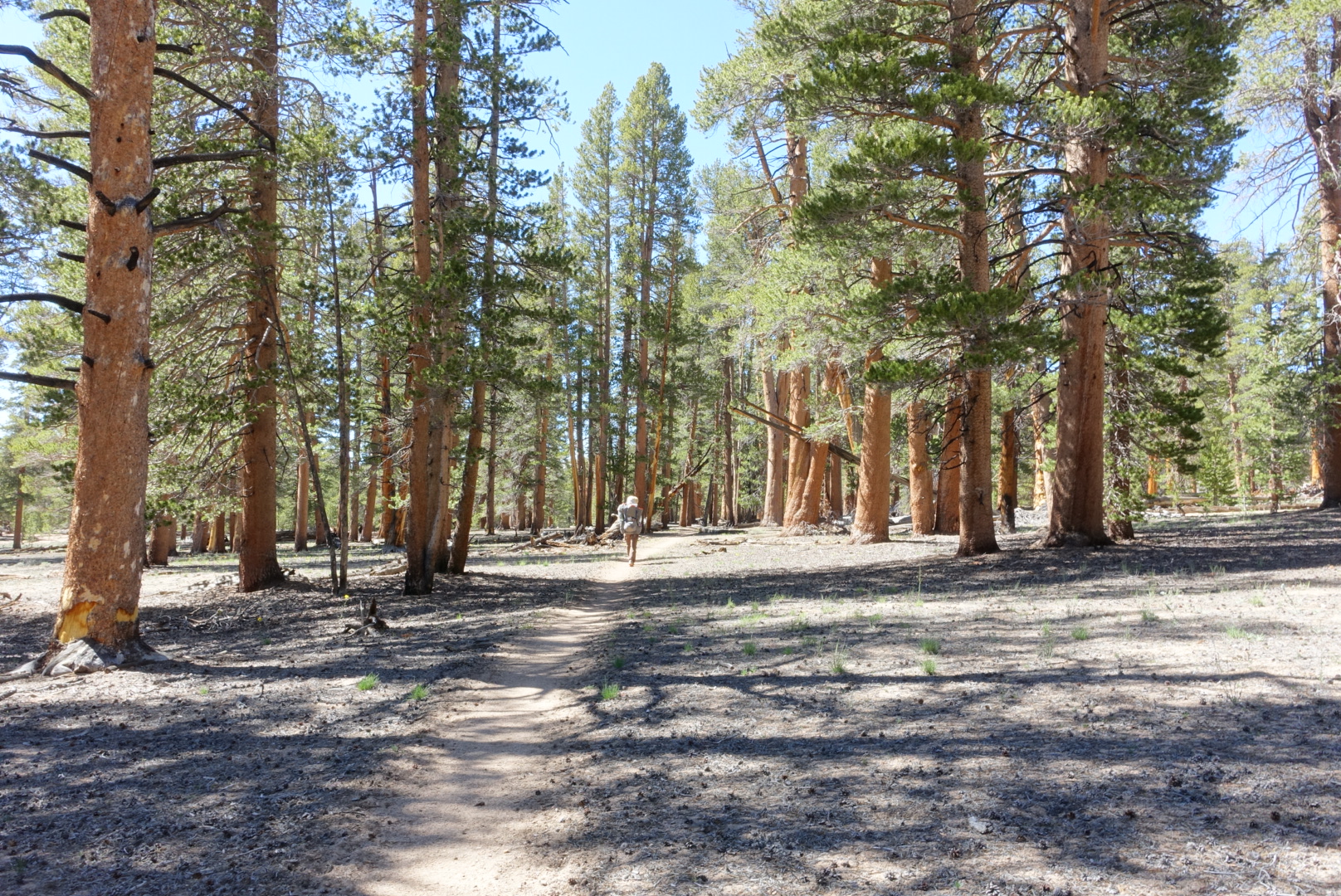
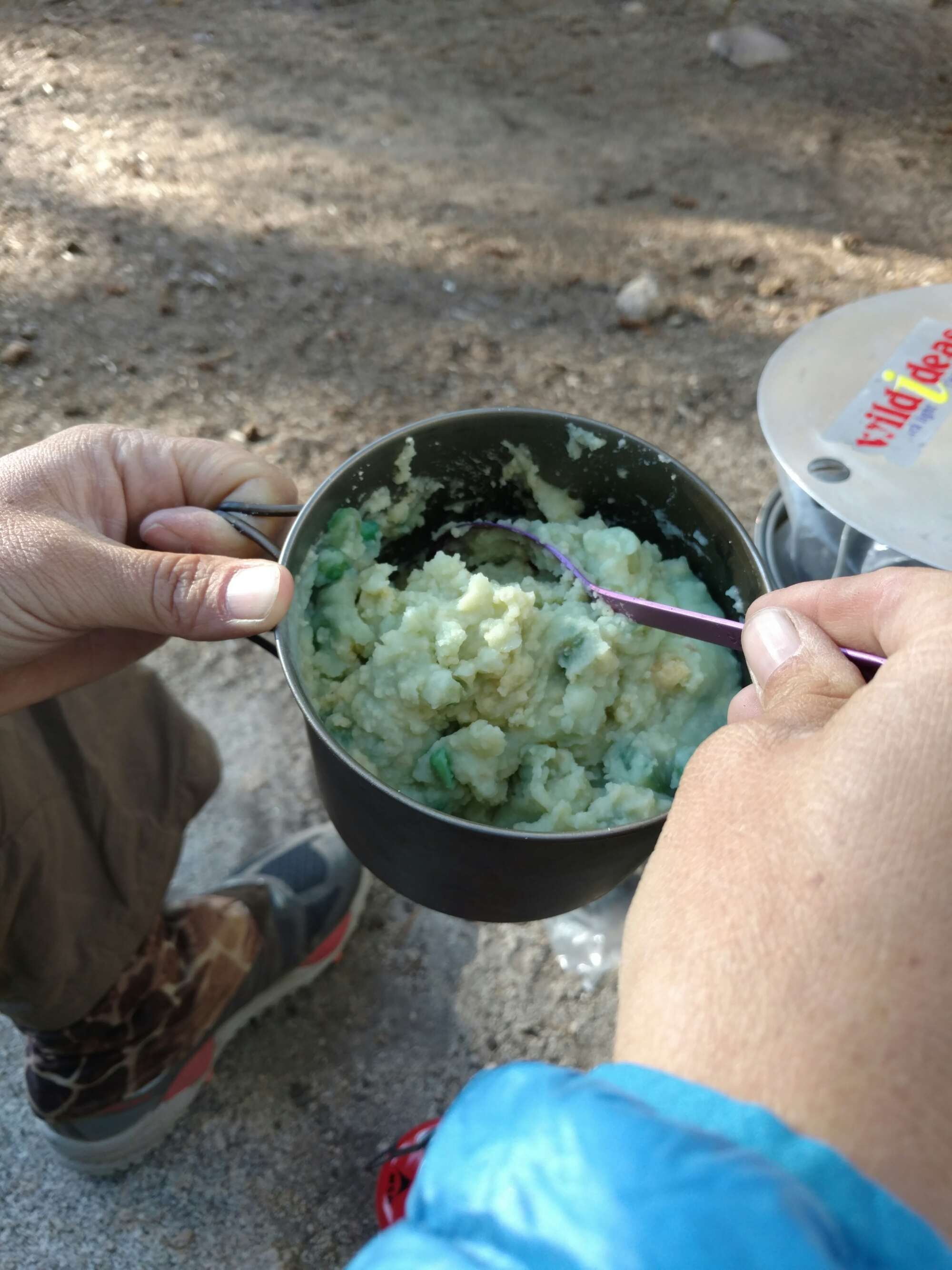
That plant is commonly called the “snow plant”
http://www.fs.fed.us/wildflowers/plant-of-the-week/sarcodes_sanguinea.shtml
Thank you, anonymous commenter! Fascinating that it doesn’t photosynthesize. I’m wondering if it’s related to the pale cream plant that otherwise looks the same, further north in Southern Oregon.
No problem Marcus 🙂
Thank you for sharing your journey with us
Justin
And thanks for reading, Justin.
But, get back to work, you’re posting from a work IP.
Didn’like the name of this section!
Death Canyon was actually surprisingly lush. I’m guessing it got the name for some geological connection to Death Valley.